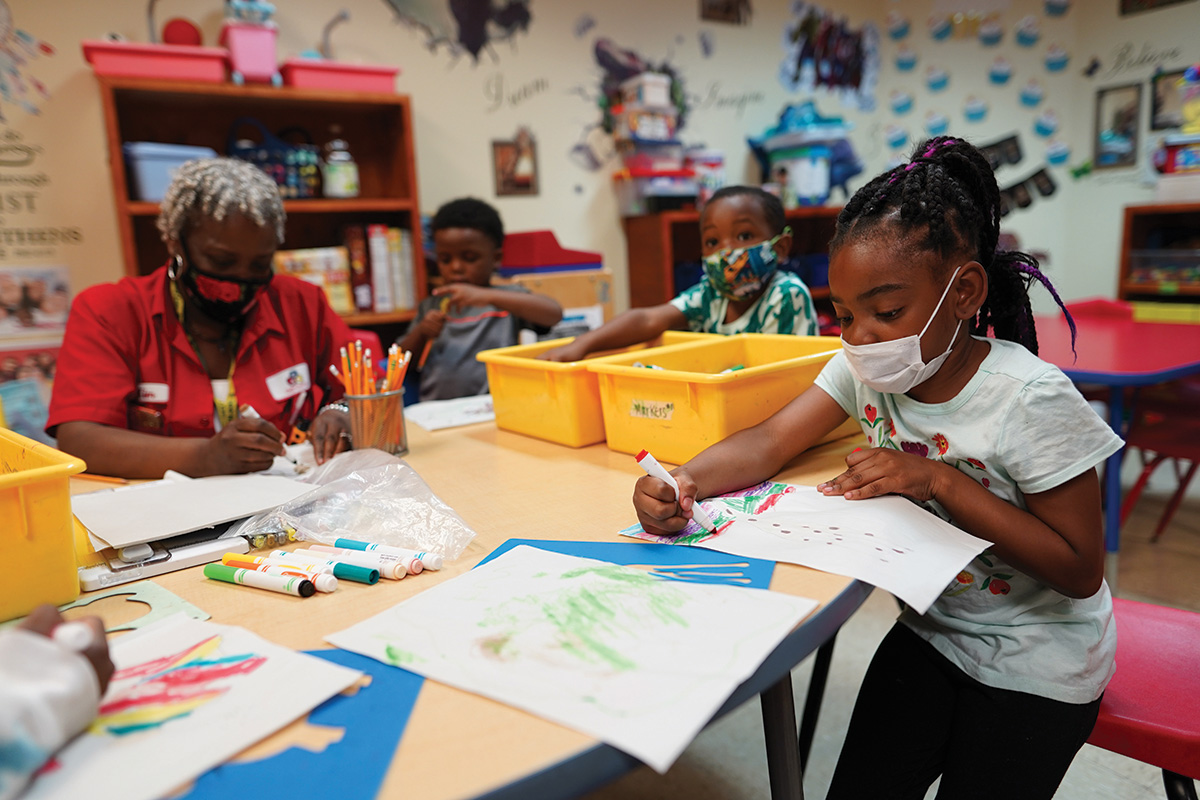Early Childhood Education
The Greater Milwaukee Foundation is committed to strengthening the early childhood education sector in Milwaukee for both providers and families through a focus on increasing quality, access and affordability of services.
We believe every child in Milwaukee deserves access to the best start in life and there is no time to waste. Research shows that 80 percent of a child’s brain is developed by age 3, with developmental disparities forming before a child’s first birthday. Early childhood education also allows parents of young children to participate in the workforce, making it an economic imperative as well.
Challenge
Only one in three Milwaukee children live in a community with equitable access to early childhood education. Children of color are disproportionally affected by this lack of access at their most vulnerable time of life.
Goal
Every child in the city of Milwaukee is prepared to enter school.
Priorities
- Invest in high-quality early childhood education facilities
- Increase recruitment, retention, compensation and professionalization among Milwaukee’s early childhood education workforce
- Advocate for increased access to quality, affordable early childhood education for people of color
Milwaukee Succeeds


For years, the Foundation and our communitywide education partnership, Milwaukee Succeeds, have collaborated with providers, parents and other stakeholders to amplify their voices and demonstrate how early childhood education is essential to a Milwaukee for all.
More information
Recent investments
- Visit Recent Grants to search for information on grants made from our competitive grantmaking process to support early childhood education.
- With impact investments in early childhood education, we are working to increase the supply of quality providers and build the early childhood teaching workforce.
Partnerships
- Formed as part of the MKE Civic Action Team in response to the COVID-19 pandemic, the MKE Early Childhood Education Coalition, brings committed partners together for advocacy and to inform investment in the sector.
Funding opportunities
To apply for a grant for facility upgrades, quality, and access improvements related to early childhood education, visit our Grantseekers page.
